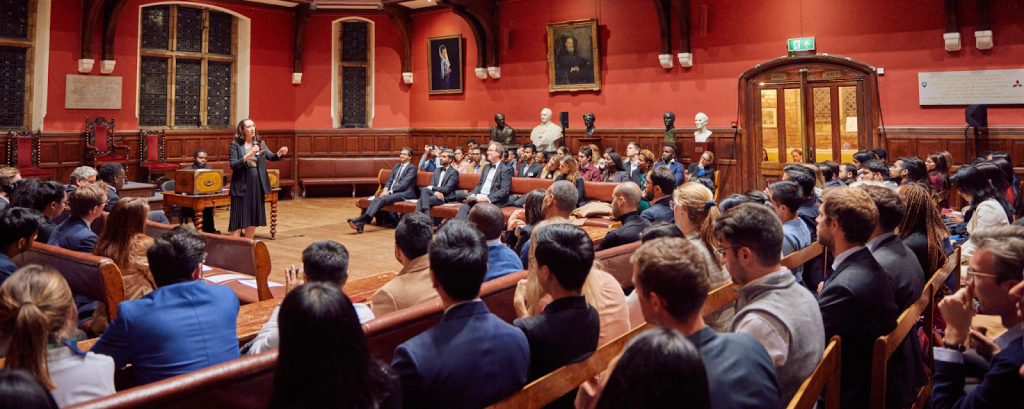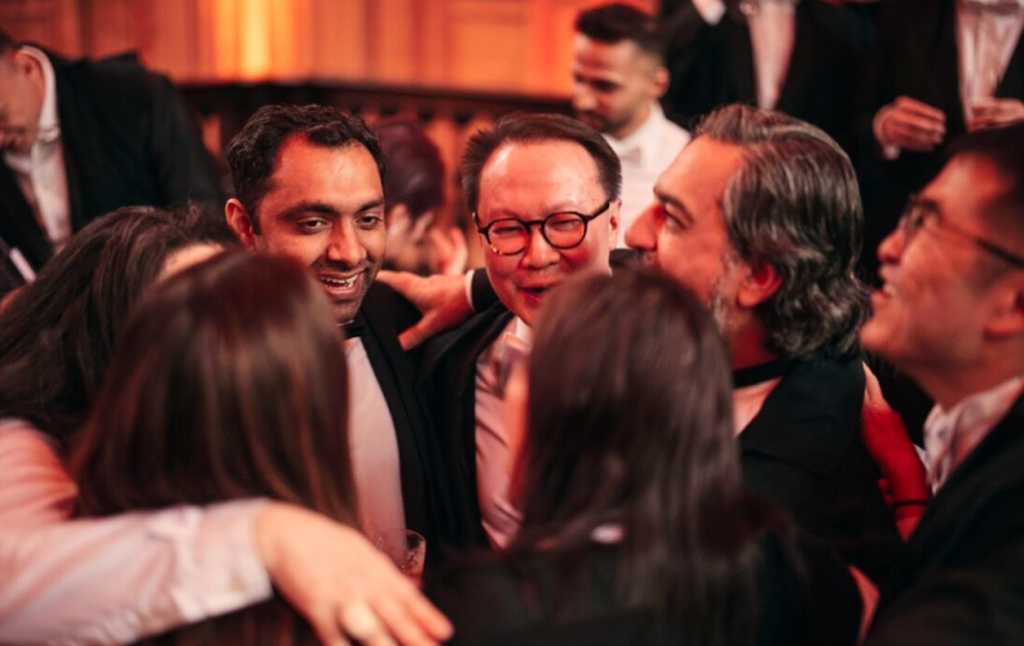A Journey Through Time: My Oxford End of Course Ceremony and the Weight of Centuries
Standing in the Holywell Music Room, dressed in the peculiar yet dignified attire known as sub fusc, I found myself momentarily suspended between past and present. The occasion was my end of course ceremony for the MSc in Major Programme Management (MMPM) at the University of Oxford—a milestone that marked not just the completion of eighteen months of rigorous study, but my formal induction into a tradition stretching back over nine centuries.
Becoming Part of Oxford's Living History
When I was first matriculated eighteen months earlier, I became more than just a student; I became a living thread in the vast tapestry of Oxford’s history. Matriculation—the ceremony that formally admits students to the University—is one of those uniquely Oxonian rituals that immediately connects you to everyone who has walked these ancient cobblestones before you. From medieval scholars to Nobel laureates, from poets to prime ministers, we all stood in similar rooms, wore similar robes, and spoke similar Latin phrases that have echoed through the centuries.
For those unfamiliar with Oxford (or indeed its friendly rival Cambridge, affectionately dubbed “The Other School” by Oxford folk), these traditions can seem bewildering.
When I was first matriculated eighteen months earlier, I became more than just a student; I became a living thread in the vast tapestry of Oxford’s history. Matriculation—the ceremony that formally admits students to the University—is one of those uniquely Oxonian rituals that immediately connects you to everyone who has walked these ancient cobblestones before you. From medieval scholars to Nobel laureates, from poets to prime ministers, we all stood in similar rooms, wore similar robes, and spoke similar Latin phrases that have echoed through the centuries.
Terms like “sub fusc”, “matriculation”, and “Michaelmas term” create their own linguistic ecosystem. When I first encountered these words, I felt like I’d stumbled into a secret society without the decoder ring.
Sub fusc, I learned, is the formal academic dress required for university ceremonies and examinations. The term comes from the Latin subfuscus, meaning “dark brown” or “dusky.” Over your formal attire, you wear your academic gown—in my case, the advance student’s gown, a sleeveless black affair that somehow manages to be both simple and deeply symbolic. Looking around the room during my ceremony, seeing dozens of us dressed identically in this centuries-old uniform, I felt the strange comfort of conformity with history. We looked absurd by modern standards, perhaps, but we also looked right—like we belonged to something larger than ourselves.
The Holywell Music Room: Where History Resonates
The choice of venue added another layer of historical resonance. The Holywell Music Room, built in 1748, holds the distinction of being the oldest purpose-built music room in Europe and Britain’s first concert hall. Before this elegant Georgian building existed, there was no dedicated space in the country designed specifically for chamber music performance.
Walking into the Holywell Music Room is like stepping into a perfectly preserved time capsule. The room is surprisingly intimate, with cream-colored walls, high windows, and a raised platform for performers. The acoustics are legendary—generations of musicians, from Handel in the 18th century to contemporary chamber ensembles, have praised its crystalline sound quality. As I sat in one of the wooden benches, I couldn’t help but imagine all the other ceremonies and concerts these walls had witnessed. The weight of that history was almost overwhelming, but in the best possible way.
Nine Centuries of Teaching & Tradition
Oxford University’s history is staggering in its depth. Teaching existed at Oxford as early as 1096, making it the oldest university in the English-speaking world. Oxford was teaching students before the Magna Carta was signed, before the Renaissance, before the printing press existed, before Shakespeare wrote a single word.
Being part of an institution with this kind of legacy creates a peculiar emotional cocktail. There’s pride, certainly—but also profound humility. Who am I to claim a place in this lineage? Yet that’s precisely the beauty of Oxford’s approach to tradition. It doesn’t reserve itself for the extraordinary; it extends itself to everyone willing to engage seriously with learning. Oxford’s traditions are profoundly democratic—they dignify every student equally.
The MMPM Journey: Modern Learning in Ancient Halls
My particular course, the MSc in Major Programme Management (MMPM), represents Oxford’s ability to balance tradition with contemporary relevance in its most striking form. Programme management—is a distinctly modern discipline, born from 20th and 21st-century organizational complexities. Yet here was Oxford, with its medieval spires and ancient quadrangles, teaching cutting-edge management practice with the same rigor it applies to classics or philosophy.
What makes this juxtaposition even more poignant is that the MMPM is one of Oxford’s newest programme offerings. As members of only the 15th cohort, we represent less than two decades of history within an institution that has been teaching for nine centuries. If Oxford’s history were a 900-page book, our programme would appear only in the very last few pages.
This temporal contrast creates a fascinating tension. The buildings we walked through for lectures have stood for centuries; the libraries we studied in hold manuscripts older than most nations. Our programme, by comparison, is barely a teenager in institutional terms. Yet this newness carries its own significance. We are pioneers of sorts, helping to establish the traditions and reputation that future cohorts will build upon.
The eighteen months of study were intellectually demanding in ways I hadn’t fully anticipated. You cannot hide in Oxford’s teaching system; you cannot passively absorb information. You must engage, argue, defend, and sometimes admit you don’t know—all valuable skills for both academic growth and practical leadership.
The cohort itself was remarkable—professionals from around the world, bringing diverse experiences in construction, finance, technology, social sector, and countless other fields. Our discussions were enriched by this diversity, as theoretical frameworks met real-world challenges from six continents.
What struck me most was how seamlessly the MMPM integrated into Oxford’s broader academic culture. Despite being a young programme focused on contemporary management challenges, it demanded the same intellectual rigor and quality of argument that have always defined Oxford scholarship.
We might have been studying stakeholder or risk management rather than Aristotle and Augustine, but the standard of excellence remained unchanged.
The MMPM doesn’t dilute Oxford’s traditions—it extends them into new domains, proving that the university’s approach to learning is timeless.
Gratitude: Making the Journey Possible
None of this would have been possible without the joint support of Oxford University and my employer, Maven. Their shared commitment to professional development and educational excellence made this transformative opportunity a reality.
Oxford’s decision to invest in emerging leaders through its Director’s Awards scholarships, combined with Maven’s visionary approach to supporting and investing in employee growth, created a partnership that extended far beyond financial backing.
It represented a belief in the value of rigorous education and its potential to create a positive impact in the world of programme management. I am profoundly grateful to both institutions for recognizing that investing in people and their intellectual development is an investment in the future—both for individuals and the organizations they serve.
Looking Forward While Honoring the Past
As the ceremony proceeded through its formal stages—the Latin phrases, the symbolic gestures, the music—I reflected on what this moment truly meant. It was an ending: the completion of coursework, the satisfaction of requirements met. It was a beginning: equipped with knowledge and confidence to tackle new challenges. But most profoundly, it was a moment of connection—to fellow cohort, to faculty, to the long chain of Oxford scholars stretching back through centuries, and to myself.
Standing there in my sub fusc, in Britain’s first concert hall, in the oldest university of the English-speaking world, I felt the full weight of nine centuries of tradition. But unlike a crushing weight, it felt more like building a foundation—something solid and enduring that grounds you while still allowing you to move forward.
As I left the Holywell Music Room that March evening, walking back into modern Oxford with its bustling streets and smartphone-wielding tourists, the juxtaposition between ancient and contemporary seemed perfectly natural. This, after all, is what Oxford does best: it honors its past without being imprisoned by it, maintaining traditions that remain meaningful while continuously evolving to meet new challenges.
My Oxford journey may have concluded, but in another sense, it has just begun. I carry with me a connection to something enduring—a tradition of rigorous thinking, intellectual honesty, and the belief that education, in its truest sense, is never really finished.
Connect with Shafqat https://www.linkedin.com/in/connectshafqat/






